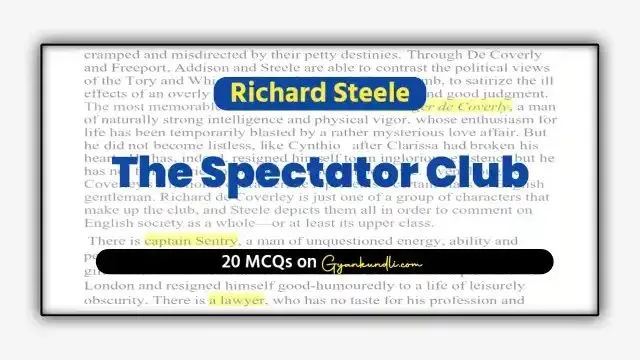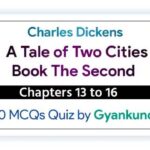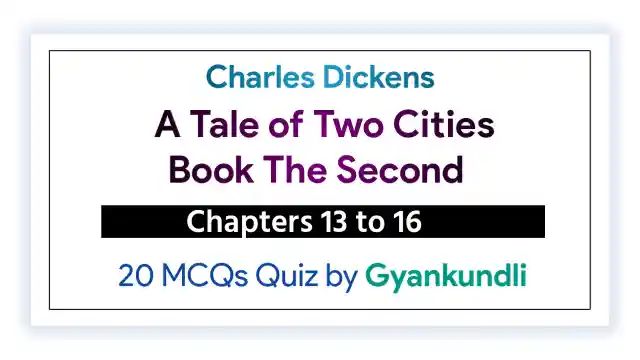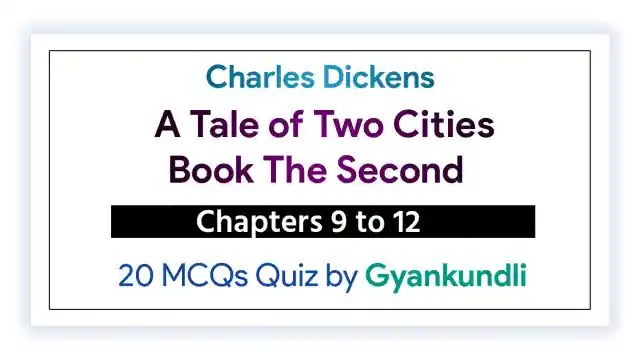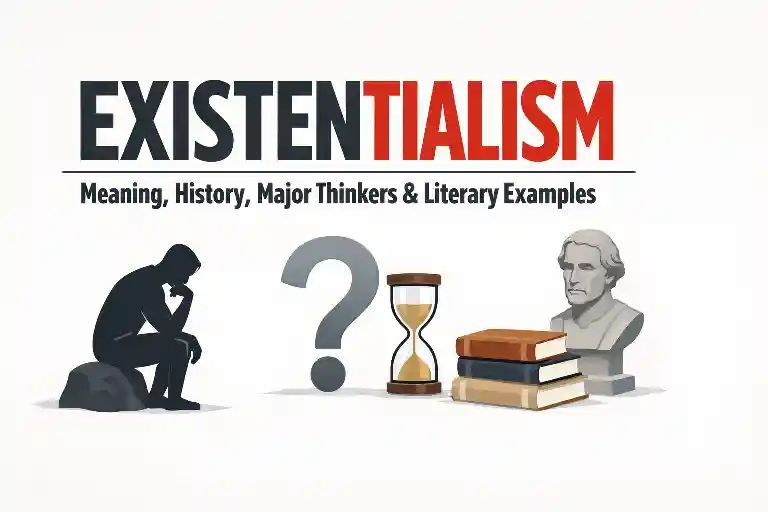The Spectator Club MCQ Quiz : “The Spectator Club,” published on 2nd March 1711, is one of the most famous essays written by Richard Steele in The Spectator, a periodical he co-founded with Joseph Addison. This essay introduces the main members of the imaginary Spectator Club, each representing a different section of English society during the early eighteenth century. Through these characters, Steele paints a lively picture of the moral, social, and intellectual life of his age.
The central figure of the club is Sir Roger de Coverley, a kind-hearted and eccentric country gentleman from Worcestershire. He is about fifty-six years old and is known for his good sense, humour, and love for mankind. Though old-fashioned and peculiar in his habits, his manners are guided by goodness and sincerity. His unfulfilled love story with a “perverse beautiful widow” adds charm and pathos to his character. Sir Roger is one of Steele’s most delightful creations — honest, generous, and full of human warmth.
Next comes the Lawyer, a bachelor of the Inner Temple. He is intelligent and witty but prefers reading classical literature like Aristotle and Longinus to legal texts. Steele uses him to show the gap between learning and practical life, and how intellectual pursuits can sometimes become detached from real-world needs.
The third member, Sir Andrew Freeport, is a successful London merchant. He stands for the rising middle class of traders and businessmen. Steele portrays him as wise, practical, and industrious — a man who believes that true power comes from commerce and hard work rather than war. His favourite saying, “A penny saved is a penny got,” reflects his frugality and business sense.
Captain Sentry represents the soldierly class. He is brave, modest, and honest, but feels uncomfortable in a world where impudence often wins over merit. He has retired from the army to live a peaceful life, showing Steele’s respect for quiet dignity and humility.
Will Honeycomb, the fifth member, is a fashionable old bachelor who represents the manners and vanities of polite society. His world revolves around women, dress, and gossip, yet he adds liveliness and humour to the group.
Finally, there is the Clergyman, a man of deep learning and pure character. His spiritual wisdom balances the worldly discussions of the club.
Through these six members, Steele presents a miniature portrait of eighteenth-century England — its classes, professions, and ideals. The Spectator Club remains a timeless essay that blends humour, morality, and social criticism in a graceful and engaging style.
Read this also : Of Studies by Francis Bacon: Introduction, Summary & Analysis
The Spectator Club MCQ Quiz
Discover more from Gyankundli
Subscribe to get the latest posts sent to your email.
